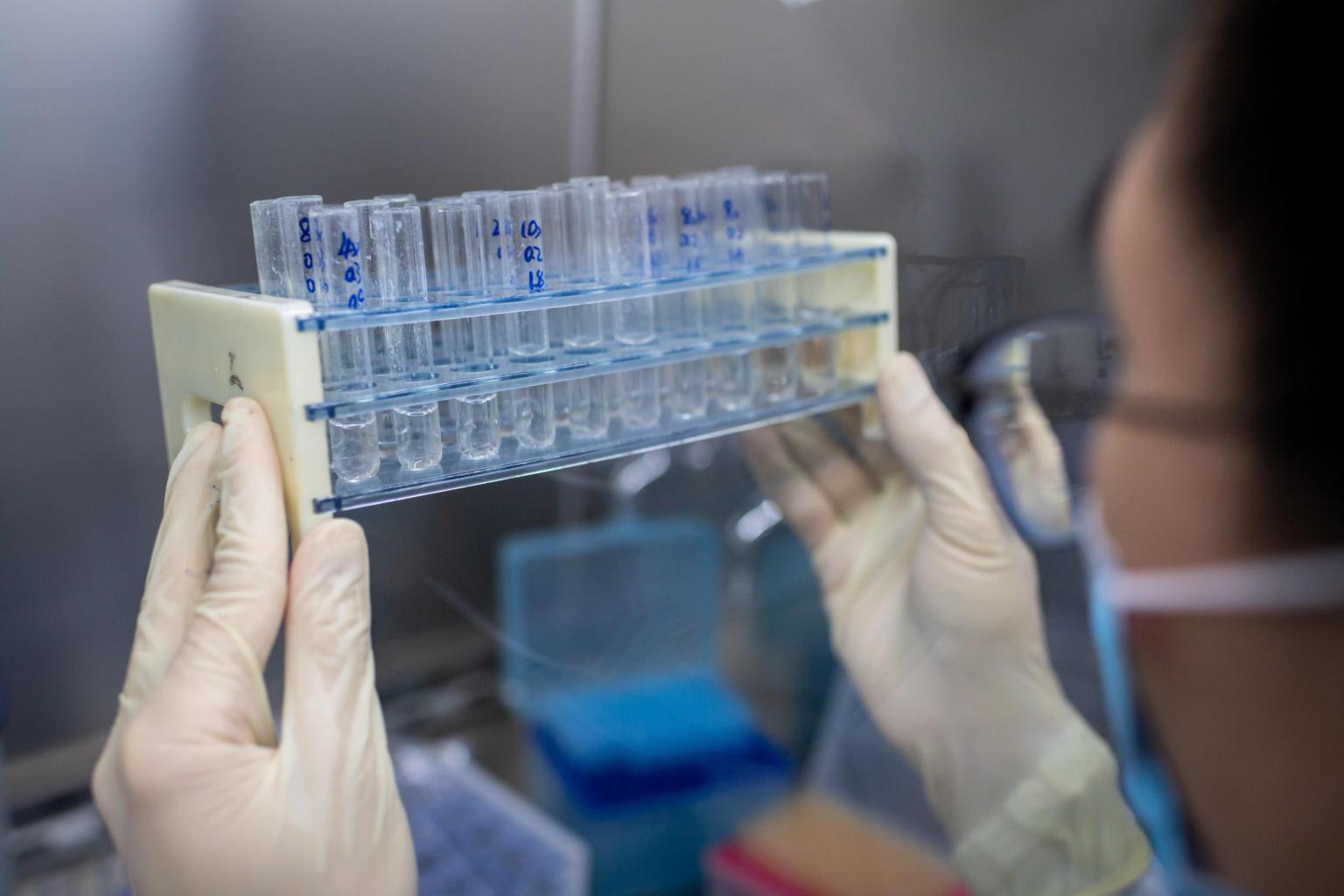Coronavirus: Competition hots up globally with 8 candidates in clinical trials
Sign up now: Get ST's newsletters delivered to your inbox

Of the eight in clinical trials, four are from China.
PHOTO: AFP
Countries are seeking to reopen their economies and borders, even as experts warn of a second wave of Covid-19 infections, kicking the global race for a vaccine and cure into high gear.
Under normal circumstances, vaccines can take as long as 20 years to develop and license. But the scale and impact of the Covid-19 outbreak - with about 4.8 million cases worldwide and more than 300,000 deaths - have seen scientists around the world accelerating their research.
As of last Friday, less than six months after the first case of infection was reported in China, the World Health Organisation (WHO) said there are eight vaccine candidates in clinical trials. Another 110 vaccine candidates are in the pre-clinical stage.
Of the eight in clinical trials, four are from China, two from the United States, one from Britain, and one is being developed jointly by a trio of German, Chinese and American companies.
Last Thursday, Reuters reported that a vaccine candidate by Oxford University had shown "promising findings" when trialled on monkeys. However, it noted that the findings had not been peer-reviewed by other scientists.
Meanwhile, efforts to fast-track a vaccine through controversial human "challenge studies" have been the subject of debate. While the typical development of a vaccine involves giving volunteers either a vaccine or a placebo, and seeing if they get infected naturally, challenge studies involve giving people an experimental vaccine and then deliberately attempting to infect them with the virus.
This method has the potential to produce a vaccine more quickly than the traditional route, but is considered riskier.
On May 6, the WHO released a series of guidelines for such trials, in which it said: "Challenge studies could (be) associated with substantial public health benefit in so far as they accelerate vaccine development, increase the likelihood that the most effective (candidate) vaccines will ultimately become available, validate tests of immunity, and improve knowledge regarding Sars-CoV-2 infection and transmission."
But while the race for a vaccine continues, the subject of how to tell if someone is 100 per cent protected from Covid-19 infection is a hotly debated one.
While some had initially believed that antibodies could grant immunity from the disease, the WHO said last month there was no evidence that those who had recovered from Covid-19 and had antibodies would be protected from reinfection.
Some experts, like Professor Wang Linfa of Singapore's Duke-NUS Medical School, have gone with a "best we can get" approach and are looking at neutralising antibodies, which have a history of conferring protection from various infectious diseases but have not been officially declared protective by the WHO.
Prof Wang told The Straits Times last Friday: "In most cases, neutralising antibodies equal pro-tection, or are the best indicator of protection (from the virus)... It is not a perfect indicator or biomarker for protection (from Covid-19), but it is as good as you can get right now... We have to be realistic, either you do nothing or do something."


